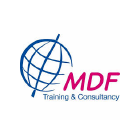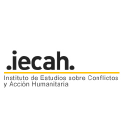WORKING WITH DG ECHO AS AN NGO PARTNER | FPA 2014 - 2020
MEMBER STATES' SPECIALISED AGENCIES (MSSAS)
Pursuant to Article 9 of Humanitarian Aid Regulation (HAR), humanitarian aid actions financed from the European Union budget may, where necessary, be implemented by a Specialised Agency of a Member State (MSSA). The MSSAs are national public law bodies or bodies governed by private law, set up in a Member State of the EU, with a public-service mission in the area of humanitarian aid.
A public service mission can be granted to a private law entity through a specific act/decision/agreement of the relevant authorities. Alternatively, the private law entity can pursue the public service mission under the effective control of the relevant authorities
WHAT ARE THE ELIGIBILITY CRITERIA?
The HAR, though not providing a definition of MSSAs beyond the requirement of establishment in the EU, provides guidance on the criteria that any potential ECHO partner that wishes to implement humanitarian actions with Union funding, needs to comply with.
It must be an entity with experience in the field of humanitarian aid and have sufficient legal personality so as to be able to undertake legal obligations and to sign contracts.
Further on, Article 62.1 (c ) of the Financial regulation foresees the possibility for the Union budget to be implemented through “public law bodies, including Member State organisations;
(vi) bodies governed by private law with a public service mission, including Member State organisations, to the extent that they are provided with adequate financial guarantees;
(vii) bodies governed by the private law of a Member State that are entrusted with the implementation of a public- private partnership and that are provided with adequate financial guarantees; .
In addition, the European Consensus on Humanitarian Aid, which was signed by the Commission, the European Parliament and the Council on 18 December 2007, has reaffirmed EU's commitment to the fundamental humanitarian principles of humanity, neutrality, impartiality and independence. Accordingly, ECHO only provides funding for humanitarian aid actions to organisations which commit to respect these fundamental principles.
Based on the above, entities wishing to be recognised as an MSSA by ECHO must comply with the following criteria:
HOW TO OBTAIN RECOGNITION AS MSSA?
To obtain recognition as an MSSA by ECHO, entities complying with the above criteria, need to submit an Application form (available below). It is to be accompanied by supporting documentation through which the applicant demonstrates compliance with the above criteria. Non-submission of the required supporting documents may result in the rejection of the application.
The Application form and the supporting documents must be returned to ECHO to the following e-mail address: ECHO-LEGAL-AFFAIRS@ec.europa.eu.
ECHO will then assess the application. It will formally inform the applicant in writing of the outcome of the application.
During the course of the assessment, if needed, ECHO will request specific documents and additional information from the applicant or the national authorities of the applicant's Member State of establishment and carry out verification missions at the headquarters of the applicant. Failure to provide ECHO with the requested information or documentation may be considered by ECHO as a renunciation of the application and the assessment process will be discontinued and closed. In such a case, the applicant will be informed formally and in writing thereof.
If the outcome of the assessment is successful, the applicant will be informed formally and in writing thereof and the applicant will be recognised as an MSSA by ECHO. As MSSAs do not sign a Framework Partnership Agreement with ECHO, the MSSA in question will be asked to acknowledge its acceptance of the relevant terms and conditions (contractual template) to be used in the event where the MSSA would request and be awarded Union funding.
DOCUMENTS APPLYING TO MSSA
The MSSAs do not sign an FPA with ECHO. Indeed, after having applied to ECHO, if the result of the assessment is successful, MSSAs are recognised and sign a letter to acknowledge their acceptance of the applicable legal template.
However, the majority of the FPA NGO provisions have been transmitted to the General Conditions applicable to the MSSAs, such as:
-
obligation to comply with international law and humanitarian principles;
-
the minimum standards for the preparation and implementation of the actions;
-
and the communication through APPEL, including the use of the Single Form.
The Commission will follow in the case of MSSAs the evaluation procedure and evaluation criteria to assess Action proposals as laid down in Article 3.3 and 4 of the FPA NGO, thus ensuring equal treatment between different partners.
Due to their distinct nature, MSSAs are not subject to the periodic assessment, nor are the controls applicable to actions applied to the MSSAs.
The legal texts used for MSSAs are almost identical to the ones of the NGOs with some differences:
-
The Model of Specific Grant Agreement
-
The General Conditions applicable to humanitarian aid Actions financed by the European Union (Annex 1)
-
The Principles and procedures applicable to procurement contracts awarded within the framework of humanitarian aid Actions financed by the European Union. (Annex 2)
-
The Single Form (the same as for NGOs)
-
To a large extent, the full guidelines apply also for actions implemented by MSSAs.
Any questions may be addressed to ECHO C.3. ECHO-LEGAL-AFFAIRS@ec.europa.eu.





